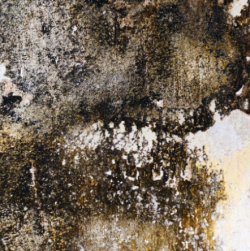Mold and Mildew
Should I be concerned if I have mold or mildew in my home?
Yes. Mold and mildews are harmful at least to the materials on which they grow, and they usually produce objectionable odors, stains and discolorations. If mold conditions are allowed to exist for long in a wood structure, the wood can quickly become weak and rotten. Fabrics and paper can be seriously damaged or destroyed in days by damp, moldy conditions. If molds grow extensively, they may produce enough airborne irritants to cause coughing and cold-like symptoms. Allergic persons may react to very small amounts of mold.
Should I test for mold or have mold samples from my home tested?
Generally it is not necessary or helpful to test molds found in homes. Usually damp areas in homes will have a large number of molds growing together. Even though many molds produce toxic or potentially toxic substances, merely finding such a mold in a home does not mean that the mold poses a serious or extreme hazard to people in the home. There is very little known about the health significance of most household molds. If one has a specific mold allergy and needs to know if that particular mold is present, then testing may be helpful. General tests to determine total numbers of molds or spores in air samples may be useful in determining if there is a significant but unidentified indoor source of mold. There are private testing firms that offer such evaluations commercially. County and state agencies in Oregon do not have resources for inspecting private homes or testing them for mold.
Who can I call for advice and assistance?
Deschutes County Health Services does not investigate the presence of mold. If you are ill, contact your health care provider. If you are interested in commercial inspection or testing in your home, you can contact firms listed under "Environmental Services", "Laboratories-Analytical" and "Industrial Hygiene" in your local telephone business listings.

